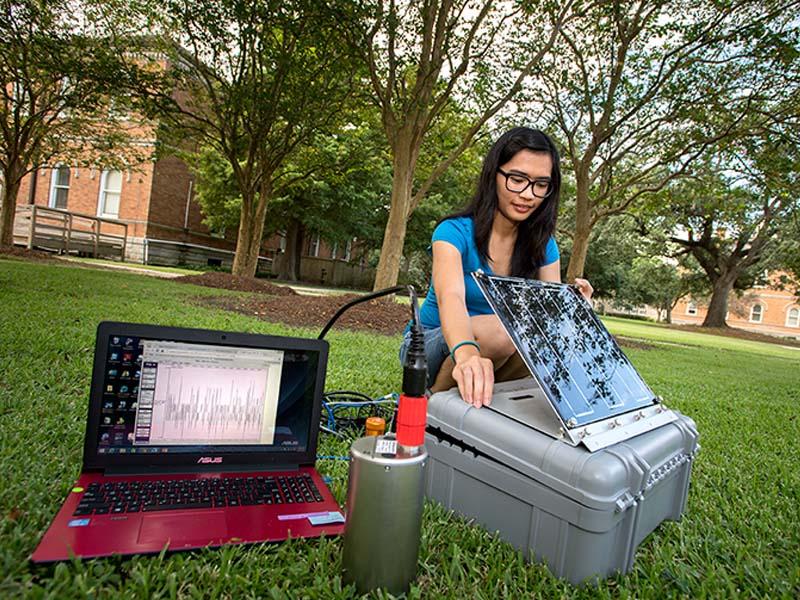Tulane student hopes research will lead to protection from volcanoes, earthquakes
East Africa may be a long way from the Crescent City, but it is top of mind for Tulane PhD student Sarah Oliva, who is studying data from volcanoes and earthquakes in that region. Her goal is a better understanding of how a 3,000-kilometer long deep valley — the East African rift system — formed. Ultimately, she hopes her research will enable her to work with scientists and help governments protect residents living near the rift.
“East Africa is basically splitting apart from Ethiopia down through South Africa,” Oliva said. “Understanding how this pulling-apart process happens will allow us to know where earthquakes and volcanic events are likely to occur, and thus, help inform hazards in the populated areas. It will also help us manage water and mineral resources that accumulate in the rift basins.”
A geophysicist from the Philippines, Oliva came to Tulane to work on her PhD degree, which focuses on imaging the distribution of molten rock (magma) and tracking its rise to the surface beneath active volcanoes and gas vents. She hopes to complete her research in two years.
Oliva is using several techniques for her project, including an analysis of how the weight of volcanoes and the magma chambers feeding the volcanic eruptions and the deep rift valley relief determine how and where Earth’s surface breaks as it is pulled apart.
In the second type of analysis, Oliva is studying Earth structure using sound waves from naturally occurring earthquakes. With sound wave data, from 39 different stations that recorded the same earthquake, the information can reveal what kind of movement created the earthquake and whether magma and gas were involved.
Oliva, whose father, Jey, is a geologist, began her research in 2015 when she was a student at the International Centre for Theoretical Physics program in Trieste, Italy. The program prepares top students from developing countries for PhD research.
While studying in Italy, she met Cindy Ebinger, then a professor at the University of Rochester, who was studying geological activity in East Africa. Ebinger was hired by Tulane in January as the Marshall-Heape Chair in Geology, and Oliva elected to follow Ebinger to New Orleans to continue her studies.
“The scientific community is very accommodating and I feel like it’s because one way or another, many of us have experienced being the foreigner — in a research visit, in fieldwork, in a conference or in a research position. And really, when it comes down to it, science knows no language, no religion, no gender and no race. My graduate school journey has made me experience that firsthand,” Oliva said.

